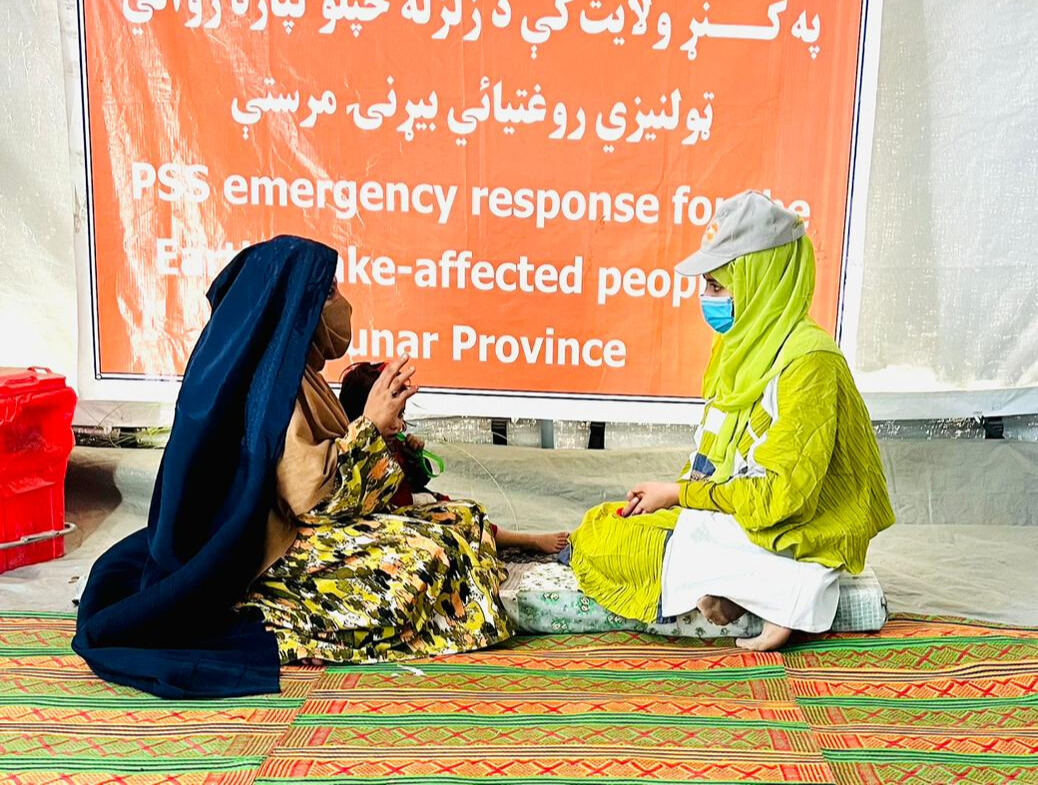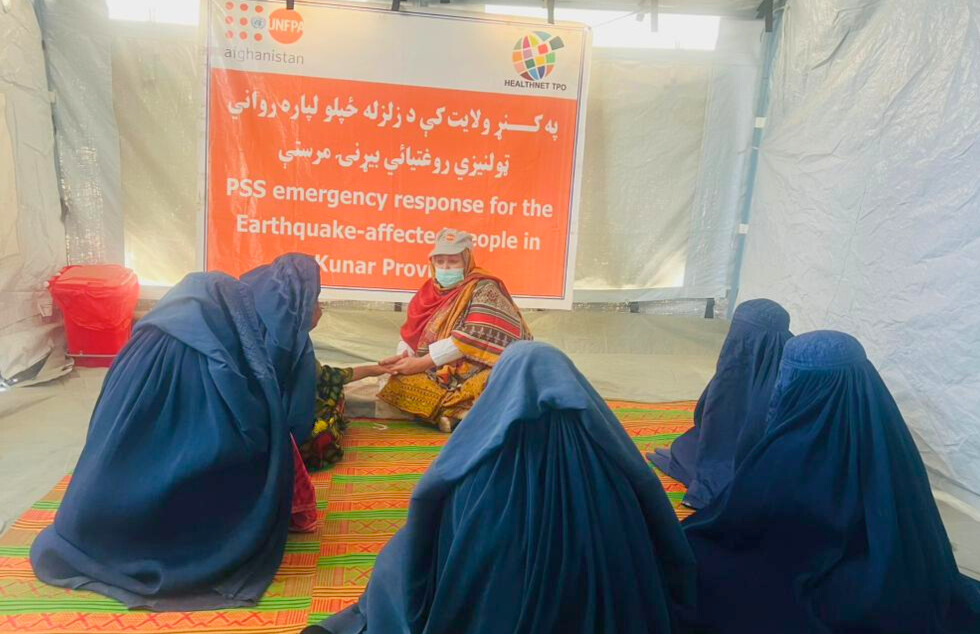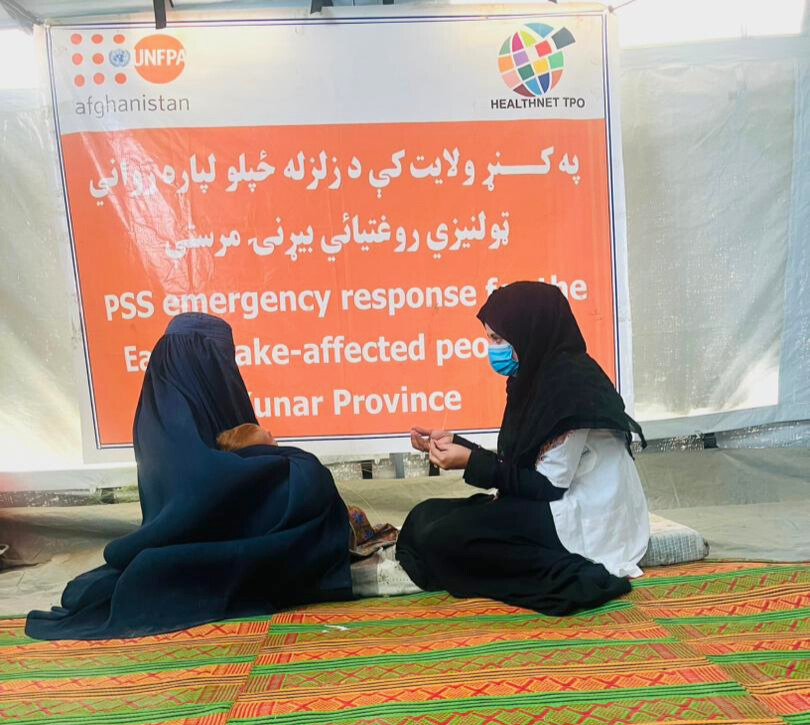In the aftermath of the earthquake that struck Kunar Province on 31 August 2025, 1,992 people lost their lives, 3,631 were injured, and 8,489 houses were destroyed. Thousands of families were displaced, and 22 health facilities were damaged. Communities, and particularly women, children, and the elderly, continue to face acute stress, shock, and other psychosocial challenges.
To help meet these urgent needs, HealthNet TPO is deploying four mobile Mental Health and Psychosocial Support (MHPSS) outreach teams to serve earthquake-affected populations in Kunar Province from October 2025 to January 2026.
This support aims to improve access to quality, culturally appropriate, and gender-responsive mental health services. The teams are providing psychological first aid, counselling, and consultations, strengthening referral systems, and training community volunteers to support recovery and resilience. This initiative will reach more than 18,500 people across four districts, helping restore access to care, reduce stigma, and build local capacity for long-term mental health support.
Taking mental health support into the heart of communities
For many people, the mobile MHPSS teams are the first point of contact for mental health care. They bring essential support directly to communities that would otherwise struggle to reach services.
“The MHPSS teams give them mental peace, information about mental health issues, and ways to manage their emotions,” says Marwa Pasoon, Psychosocial Support Counsellor and outreach team member.
“They also give people a feeling of togetherness, help them access different kinds of assistance, and refer anyone with serious mental health conditions to the right services.”
Access to care is one of the greatest challenges in the aftermath of a disaster. For people already dealing with shock and displacement, travelling to health facilities can be very challenging.




